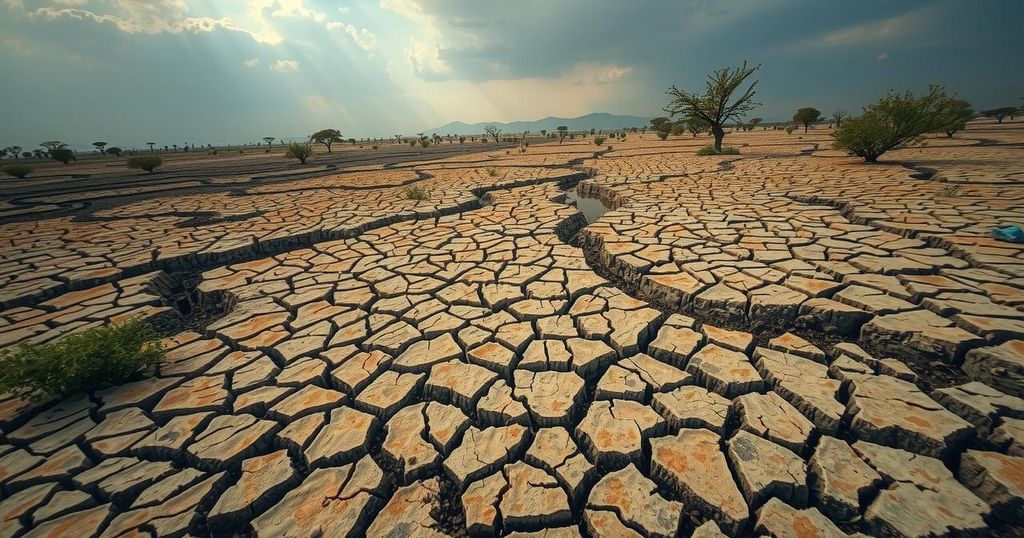Drought conditions have severely drained Lake Kariba, jeopardizing hydropower for Zambia and Zimbabwe, leading to unprecedented power cuts of up to 21 hours daily. The agricultural crisis adds to the woes as local economies falter under these pressures, highlighting an urgent need for climate adaptation and energy diversification.
The conditions surrounding Lake Kariba, the world’s largest man-made reservoir, have become dire due to an extreme drought exacerbated by the effects of El Niño. This situation threatens to disrupt operations at the Kariba Dam for the first time in its 65-year history, critical for the power supply of both Zambia and Zimbabwe. Authorities have resorted to rationing water from the dam, leading to power outages that last up to 21 hours per day in Zambia and 17 hours in Zimbabwe, severely impacting the economies and livelihoods of the populations in both nations. As temperatures rise due to climate change, the drought has not only affected hydropower generation but has also devastated agricultural yields, leaving many in southern Africa on the brink of food insecurity. The Zambezi River Authority allocates water between Zambia and Zimbabwe, where both countries rely heavily on hydropower. The drought has brought attention to the urgent need for more diverse energy sources, though the immediate reliance remains on coal and hydroelectric power. Local business owners and fishermen are struggling significantly; the shortages of electricity hinder operations, triggering significant economic losses. As the crises deepen, leaders have been called to consider alternative energy solutions while hoping for rain during the anticipated rainy season, which could alleviate some of the current challenges. These events highlight the urgent need for adaptive strategies in response to increased climatic variability in southern Africa.
The ongoing crisis in Southern Africa is primarily caused by a significant drought impacting Lake Kariba, which has reached near-historic low levels due to unprecedented dry conditions. The Kariba Dam, built during the colonial era, is pivotal for both Zambia and Zimbabwe’s electricity generation; however, recent climate changes, particularly attributed to El Niño, have led to power rationing. The situation is made worse by underlying economic struggles in both countries — Zambia’s debt issues and Zimbabwe’s severe inflation — compounding the effects of power shortages and agricultural decline, which has caused widespread hunger.
In summary, the drought severely affecting Lake Kariba has reached critical levels, jeopardizing the power supply crucial for Zambia and Zimbabwe’s economies. With power outages extending up to 21 hours a day and agricultural yields collapsing, immediate action and long-term strategies must be implemented to adapt to the increasing frequency of such climate events. Leaders must prioritize energy diversification and urgently seek sustainable practices to combat the ongoing impacts of climate change on their economies and livelihoods.
Original Source: www.theguardian.com






